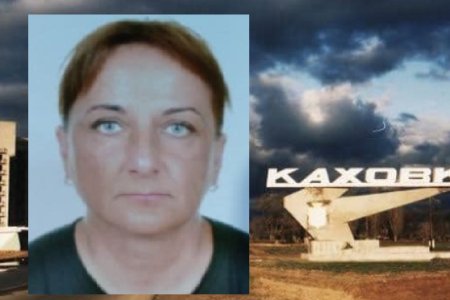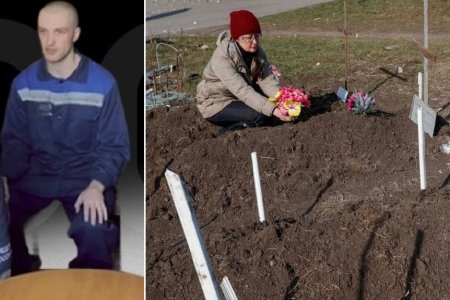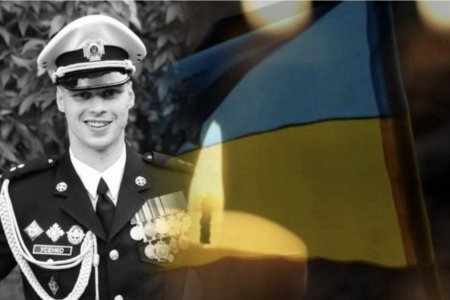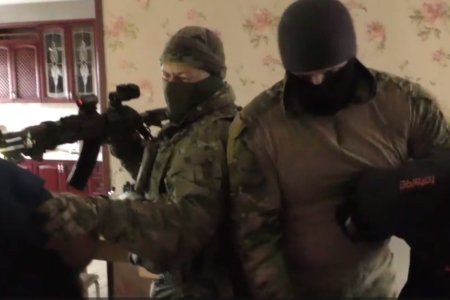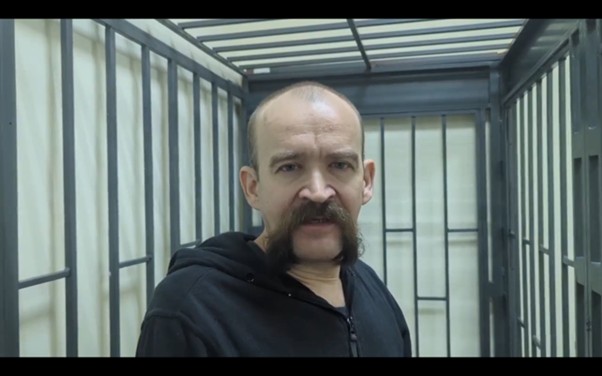
A Russian occupation ‘court’ in the so-called ‘Donetsk people’s republic’ ‘DPR’] has sentenced Serhiy Petryk, a 47-year-old neonatal doctor, to 15 years. The indictment, which claimed that he passed information to Ukraine’s Security Service is similar to that in countless other such cases, as is the use of ‘treason’ charges’ for a ‘trial’ that may have lasted as long as it took to read out the sentence. What was, doubtless, not part of the Russian plan, was that Petryk firmly denied the charge on the propaganda video from ‘court’ and did so in Ukrainian. The sentence also comes ten years after Petryk was first seized at a Russian-controlled checkpoint. He was only released then after he used his medical knowledge to simulate a serious epileptic fit and end up an intensive care unit.
The sentence announced on 3 October 2025 was supposedly from the occupation ‘DPR high court, with Petryk charged with ‘state treason’ under Article 275 of Russia’s criminal code. The reports by the so-called ‘DPR prosecutor’ and Russian media were the first information at all about this alleged ‘trial’. This is telling given that Petryk himself, seen from the court ‘cage’, made it clear that he did not ‘admit guilt’. There is even a degree of confusion as to where the sentence was passed with the ‘DPR prosecutor’ asserting that it was the Southern District Military Court in Rostov (Russia). There is nothing on the latter’s website to suggest that this was the case and all other reports say it was passed by the occupation ‘high court’ in Donetsk.
It was claimed that Petryk had, from August through October 2024, “established contact with a representative of Ukraine’s Security Service via WhatsApp and had agreed to confidential cooperation”. He had supposedly received instructions to gather information about military units of Russia’s defence ministry, and had allegedly passed on information, received from a patient, about the deployment of one such unit. The ‘court’ sentenced him to 15 years in a maximum-security prison colony, to be followed by a one-year term of restricted liberty. A fine of 105 thousand roubles was also imposed.
Aside from that he had the courage to deny the charges, insist that he is a Ukrainian citizen and say that he should be acquitted and that he was probably working in the Volodarske Central District Hospital, there is very little information about Petryk in the last five years. The fact that he was accused of ‘treason’ means that he has Russian citizenship. However this, in turn, means nothing since the aggressor state has made it impossible to live, work, receive healthcare, etc. without having a Russian passport.
In 2020, Dmytro Durnev, a journalist originally from Donetsk oblast, wrote an article about repression in occupied Donetsk in which Petryk’s case was described, as was that of neuropathologist Yury Shapovalov, who was recently freed after eight years in captivity. Although back in 2020, Russia was still pretending that it had nothing to do with the so-called ‘DPR’, the situation then and now seem depressingly similar. ‘Durnev notes that ‘trials’ at the ‘DPR high court’ were generally one-day affairs, beginning and ending with the victim’s sentence. Then, as now, ‘evidence’ and ‘confessions’ were extracted through torture, including at the notorious Izolyatsia secret prison in Donetsk, which former prisoners describe az a concentration camp.
Serhiy Petryk, whom Durnev described as a well-known children’s neonatal doctor from Makiivka, was clearly living outside occupied Donetsk oblast in the autumn of 2015. He was seized then at a militant checkpoint while trying to get to his mother and future wife. He was ‘arrested’ and spent four days and nights in a militant-controlled ‘police station’ in Donetsk.
In recounting his experience, Petryk noted that the “funniest” thing was that he was seized because of the stethoscope around his neck that he never really took off, but which one of the militants found ‘suspicious’. They said that he must be working for the Red Cross, which they claimed was acting against their so-called ‘people’s republic’.
He was, perhaps, lucky that he ended up at an occupation police station, and not at the so-called ‘DPR ministry of state security’ responsible for most of the abductions and torture. He was beaten, interrogated, threatened, though he says he had imagined it would be worse. He knew, however, that in order to get out of there, he needed to get a message to his mother. He simulated an epileptic attack and, being a doctor, knew how to do this so well that he ended up in intensive care ward of the Vishnevsky Hospital. There he met a person he had studied with at medical school and asked him to contact his mother. She leapt into action immediately, and even found a neighbour from her apartment block who turned out to be a ‘major’ in the so-called ‘DPR ministry of state security’, with that clearly helping. Without his colleague’s help, he might have been stuck in captivity for a long time, with his family having no idea where he was.
In 2020, Petryk was working with children in a hospital near Mariupol which was, then, still government-controlled. It is not clear whether Petryk was unable to leave after Russia began its full-scale invasion of Ukraine, or whether he consciously chose to remain.
